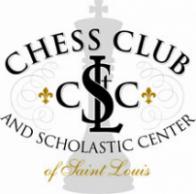This study was published in 2008 and examined the effect of chess as a mathematics lesson for students with learning disabilities in four German schools. Some classes were randomly assigned to have one hour of chess lessons per week in replacement of one hour of math lessons for one academic year. Students in the treatment and control groups were given a math assessment designed by the authors at the beginning and end of the year to measure their concentration and calculation abilities. The chess lessons were designed specifically for children. Thirty-one students from the treatment group and 22 students from the control group completed the pre- and post-test and were considered in the analysis. The authors found that calculation abilities for counting and simple addition tasks improved significantly more in students receiving the chess lessons. The effect size in mathematics was 0.204 standard deviation units. However, the results were statistically insignificant suggesting no difference between treatment and control students. This study was eligible for inclusion in the systematic literature review and categorized as a Tier I study. The results may not be generalizable to students without learning disabilities, or to students with learning disabilities in larger class sizes (classes in this study had a class size of 8-13 students).
OUR MISSION It is the mission of the Saint Louis Chess Club, an educational organization, to maintain a formal program of instruction to teach the game of chess and to promote and support its educational program through community outreach and local and national partnerships to increase the awareness of the educational value of chess.

Wheelchair access is available in the rear of the STLCC building. Please proceed through the parking lot to our east and around to our back door. If you need additional assistance, please contact us at 314-361-2437 .
The STLCC does not discriminate on the basis of race, color, religion, national origin, sex, sexual orientation, gender identity, age, ancestry, citizenship, genetic information, veteran status, marital status, pregnancy, disability, and any other category protected by applicable federal, state, or local laws or regulations in administration of its educational policies, admissions policies, scholarship and loan programs, events, programs, or activities.
The Saint Louis Chess Club complies with the Internal Revenue Service's guidelines regarding publication of its non-discrimination policy in its brochures, catalogs, advertisements and otherwise making it known to the general community.
Any violation of this policy should be reported to the General Manager, Joy Bray, jbray@saintlouischessclub.org - 314.361.2437, Administrative Director, Tad Middleton, tmiddleton@saintlouischessclub.org -314.361.2437 and/or the HR Manager, Cathy Gallaher, cgallaher@saintlouischessclub.org - 314.332.5582.

The integrity of Saint Louis Chess Club's relationship with minor players is paramount to the Chess Club's educational mission and success. All individuals employed by or working under the direction or authority of the Saint Louis Chess Club are expected and required to maintain appropriate boundaries and relationships with minors and are strictly prohibited from engaging in sexual misconduct, hazing and harassment.

We encourage any victim or other persons with information regarding inappropriate conduct to contact Cathy Gallaher, Saint Louis Chess Club HR Manager at cgallaher@saintlouischessclub.org. You may also make a report confidentially, and if you wish, anonymously, through our ethics reporting hotline managed by Navex at (833)221-3624.


